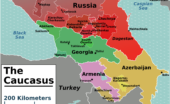Re Ian Bremmer 'Could third-party candidates upend the 2024 US election?' 3 April The current political movement in the USA…
Wednesday Night # 1829
Written by Diana Thebaud Nicholson // March 29, 2017 // Wednesday Nights // Comments Off on Wednesday Night # 1829
We are growing tired of saying (about the U.S.) “Just when we thought things could not get worse”, so this week, we will extend the statement to cover a good portion of the world.
Where to start? With the dominant news that on Tuesday Trump signed the order dismantling Obama-era climate policies Amidst all of the berating of the Administration, in an interview with PBS Newshour, former EPA chief Gina McCarthy offered a glimmer of hope: “There’s a huge amount of work between what we did to build our clean energy future and what it’s going to take to actually meet the promises of this executive order. It’s lots of hard work, many years. It’s denying the science. It’s developing facts that don’t exist.”
The Atlantic also gives a breakdown of what can be realistically expected to happen quickly and what will take a long time to effect.
The National Geographic points to China Poised for Leadership on Climate Change After U.S. Reversal
President Trump’s executive order to dismantle Obama-era climate policy is unlikely to stall global momentum on the issue, as China’s growing role comes into focus.
While Trump’s order casts uncertainty over U.S. efforts to rein in emissions, China, the world’s largest emitter of greenhouse gases, has not paused in its drive to ramp up renewable energy and curb its use of coal. It just halted the construction of 103 new coal-fired power plants, and its energy agency at the start of the year announced plans to pour more than $360 billion into renewable energy by the end of the decade.
And now, Salon reports that The White House reverses course, looks to renew health care battle
Wednesday Night’s Two Davids, Jones and Kilgour are also pursuing the healthcare debate.
David Jones writes: Republicans Can’t Square Health Care Circle reminding us that “We are outliving our design specifications.”
In Canada vs. the US: Inaccessible ‘Free’ or Unavailable Paid Health Care, David Kilgour raises the unhappy fact that “When care requires major diagnostic or surgical procedures, our “free” system must find a mechanism to allocate scarce resources. In practice, this is done by setting limits on investment in medical technology. Many find waiting lists unacceptable. To avoid delays in treatment, some Canadians travel to the United States.”
Then there is Brexit.
Theresa May has signed the letter giving official notice under Article 50 of the Lisbon Treaty that will formally begin the UK’s departure from the European Union. The BBC offers a useful timeline of Key events and possible timings. Article 50 author Lord Kerr reveals that he never had the UK in mind; rather, the EU’s divorce clause was designed amid concerns about a “dictatorial regime.
In Brexit, no sector left unscathed, Politico.eu looks at what Brexit will mean for several key policy areas including trade, financial services and other key sectors where the impact has been far less discussed – at least in North American publications
Scotland’s Parliament has, quite understandably, voted to demand a Post-‘Brexit’ Independence Referendum.
Meanwhile, in the category of courage of one’s convictions, Nigel Farage says he will leave Britain if Brexit is a disaster. His BFF Donald Trump might welcome him to the U.S.- if he could make it through the immigration barriers.
Nahlah Ayed’s report From dreaded possibility to looming eventuality — Brexit is here: is a sympathetic look at the impact of Brexit on individual’s lives.
In an ironic coincidence (or is it?) the EU celebrated its 60th anniversary in Rome and “whether inspired by the weight of the moment, the ghosts of their predecessors or the warm Roman spring — the 27 heads of government and state, pulled it off. For a day, at least, they put their squabbles aside to celebrate the unlikely success of an idea born out of catastrophe.”
In case you were too busy following Brexit to note the latest twist in French politics, François Fillon’s wife has been officially charged over embezzlement of public funds
In Russia on the 17th anniversary of Vladimir Putin’s election on March 26, 2000, anti-corruption demonstrations targeting PM Medvedev spread across the country, starting on Russia’s Pacific coast, where hundreds marched through Vladivostok. Throughout the day reports of rallies, most of them unsanctioned, flowed in from dozens of cities, but officialdom remained mostly silent. Commentators underlined the youth of most of the demonstrators, some suggesting that Putin would be reluctant to treat them harshly as he needs their vote next year.
In Peak Putin?, Gwynne Dyer writes: “It is the young whom Putin must fear, because they are less impressed by hollow foreign triumphs in places they don’t care about, and more unhappy about an economic future that leaves most of them bumping along the bottom. He has had a long run in power — seventeen years and counting — but his future is probably a lot shorter than his past. In fact, Russia may be at peak Putin right now, with only mounting troubles in his future. The crowds were smaller this time than last, but they were not just in the big cities. When there are protests in places like Chita and Barnaul, you know that a lot of people are running out of patience.”
To our surprise, the White House called on Russia to immediately release all peaceful protesters arrested. Is the Don growing nervous about the allegations of dubious links between the Trump team and Russia and the congressional investigation? Do see Trump administration U.S. – Russia relations for more.
Dr. Metin Gurcan of the Istanbul Policy Center takes a look at the issues that Secretary of State Rex Tillerson is expected to discuss during his visit to Turkey on Thursday. The list includes some of the thorniest problems in the Middle East.
First of all, even though the fight against the Islamic State of Iraq and the Levant (ISIL) is reaching its final phase, it is nowhere close to ending and all global, regional and even local actors in the wider Middle East are now taking revisionist stances and making it clear that they do not want to return to the pre-ISIL status quo.
Secondly, Iran is becoming a very capable security actor in the Middle East by filling the gaps in its conventional military deterrence capabilities by unconventional means, such as supporting Shia militias in Iraq, Syria and Yemen and maintaining ambitious arms programmes.
And finally the US is gradually withdrawing from the Middle East – particularly in the domain of security and defence – and this withdrawal is allowing Russia to raise its profile in the region.
Food for thought
Not Leadership Material? Good. The World Needs Followers.
The glorification of leadership skills, especially in college admissions, has emptied leadership of its meaning.
Alan Hustak called to our attention the news that Agnes McFarlane, has had her late husband’s book, The Sitting Bull Affair published posthumously. Robert Stewart, a ‘regular’ Wednesday Nighter, was a great writer, and this is a terrific book about the aftermath of the Custer massacre and Sitting Bull’s sojourn in Canada, north of the medicine line.
In case anybody missed the good news “Bernie is back“ – not Sanders, St. Laurent – with political commentary on CBC Radio Daybreak on Thursday morning.
And speaking of political commentary, as always, Adam Daifallah was quick off the mark with the Hatley Report on the Quebec budget. His summation? “This budget was really about shifting perceptions. After years of tough love, the government started handing out candy – but it’s saving the best for last. This budget was safe, with no major changes in taxation or other policy. The Finance Minister still has one more budget to go in 2018 before the election, and it is likely that the Liberals will present more ambitious policies then. However, the opposition parties will likely claim that the new funds for education and health are not enough.”
Quebec budget 2017: Trains, cash for education, tax cuts for austerity-weary Quebecers
File under Curiosities
Revamped National Army Museum to feature Napoleon’s horse
The Duke of Wellington’s cloak, the skeleton of Napoleon’s horse, Lawrence of Arabia’s robes, the cloak worn by the man who carried the order to the front for the Charge of the Light Brigade, and a twisted piece of shrapnel from an encounter 11 years ago in Helmand province in Afghanistan are among the new displays at the National Army Museum in London, which reopens this week after a three-year, £23.75m redevelopment.
The shrapnel still contains part of the uniform sleeve of Sgt Maj Andrew Stockton, and almost certainly part of his arm.



